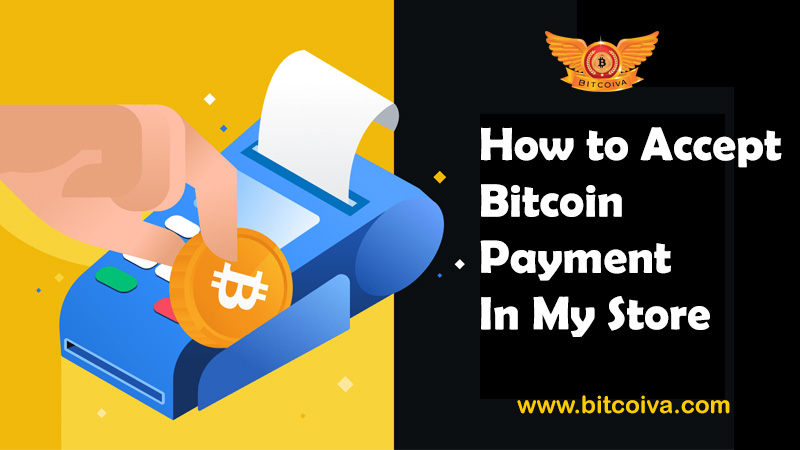Bitcoin is a digital currency, often known as a cryptocurrency. That customers of merchants who accept Bitcoin payment can exchange for products or services. Without the use of a middleman like a bank or centralized authority. Bitcoin holders can buy, sell, and trade goods and services directly.
How Bitcoin Came To the Point as Payment
Bitcoin (BTC) was made feasible by the people who believed in it. Bitcoin defied all expectations and developed into one of the most lucrative assets in human financial history, despite the fact that its journey from an online blog post to mainstream finance is a story in and of itself deserving of a novel. This was made possible by the ecosystem of traders, miners, and users.
The perfect way to experience cryptoland would be to use Bitcoin to purchase a cup of coffee from a nearby shop. The good news is that a lot of companies throughout the world have begun to accept the money that knows no borders.
The new generation of business owners want to accept Bitcoin as payment for their services given the rise in Bitcoin acceptance and the potential for a significant return on investment. Yet how?
There are presently a large number of players in the Bitcoin ecosystem who provide a secure location to store Bitcoin and other cryptocurrencies. However, there is a very real chance that you could lose all of your Bitcoin if you store it with a risky provider.
How to Receive Payments in Bitcoin
Once you’ve made the decision to begin accepting Bitcoin payments, setting everything up is simple. What you must do is as follows:
Plan How You’ll Use Bitcoin for Your Company
Some business owners prefer to trade their Bitcoin for cash as soon as it is received because it is so erratic in value. Some people continue to cling onto their Bitcoin in the hopes that its value will increase. Unbelievable as it may seem, these tactics will have an impact on the system you choose to use to receive and manage cryptocurrency.
Discover a Bitcoin Wallet
People who are unfamiliar with cryptocurrencies might be shocked to hear that there are numerous wallet alternatives to take into account. Although many of the names you’ll hear overlap, there are actually numerous varieties in addition to a variety of brands. You may run across the terms hard wallet, soft wallet, cold wallet, hot wallet, mobile wallet, and digital wallet while conducting your search.
Also known as a “hardware wallet,” the hard wallet. In essence, a hard wallet functions as an offline storage device—much like a thumb drive.
They are perfect for business owners who intend to hang on to their Bitcoin for an extended period of time because they are thought to be the most secure form of storage. For business owners who intend to accept big sums of Bitcoin, hard wallets might also be a good option.
Software wallet is another name for a soft wallet. Soft wallets are less secure than cold or hard wallets, but they can be a smart choice for company owners who intend to convert their Bitcoin into cash right away. Software wallets make up the majority of digital wallets.

Cold Wallet
Wallets without an internet connection are referred to as cold wallets. You most likely also have a cold wallet if you have a hard wallet.
Hot Wallet
Hot wallets are more susceptible to online attacks because they are connected to the internet. However, having an internet connection also makes it simpler to exchange or use Bitcoin. That might be interesting to entrepreneurs that want to use their earned Bitcoin to pay other people.
Digital Wallet
Compared to hard or cold wallets, digital wallets are often easier to use. Renowned companies with advanced connections that connect to leading e-commerce platforms include Coinbase and BitPay. From a digital wallet, business owners may send invoices, accept cryptocurrency payments, give refunds, and more. Users can produce reports to assist with tax management.
Mobile Wallet
Any cryptocurrency wallet you store on your phone is a mobile wallet, while some cryptocurrency wallets are only available as mobile apps. Business owners that conduct their operations on the fly should probably think about a wallet that is accessible from both a computer and a phone.
Locate a Bitcoin Processor
You’ll probably need a mechanism to turn your Bitcoin into cash once you start taking Bitcoin payments. Bitcoin payment processors can help with that. Users can exchange their cryptocurrencies for fiat cash, such as dollars or euros, using payment processors.
Some digital wallets are advantageous in this regard as well. As an illustration, BitPay functions as both a wallet and a payment gateway. Customers can use BitPay to automatically convert their bitcoin payments into dollars, which they can then send into the bank account of their company.
Recognize Payments in Bitcoin
You can take Bitcoin payments in a number different ways, including by adding a Bitcoin payment option to your website or by accepting them in person.
Depending on your digital wallet, adding a plug-in could be all it takes to accept Bitcoin payments on your website. Customers will notice a Bitcoin payment option when they reach the payment stage of the checkout process.
QR codes can be useful for crypto-savvy company owners who want to accept Bitcoin for in-person transactions. Customers only need to use their digital wallet app to scan the QR code you have provided. Your bitcoin address and the requested payment sum, among other necessary details, ought to automatically fill in. When the customer sends the money, the transaction is finished.
Visit us on: www.bitcoiva.com

